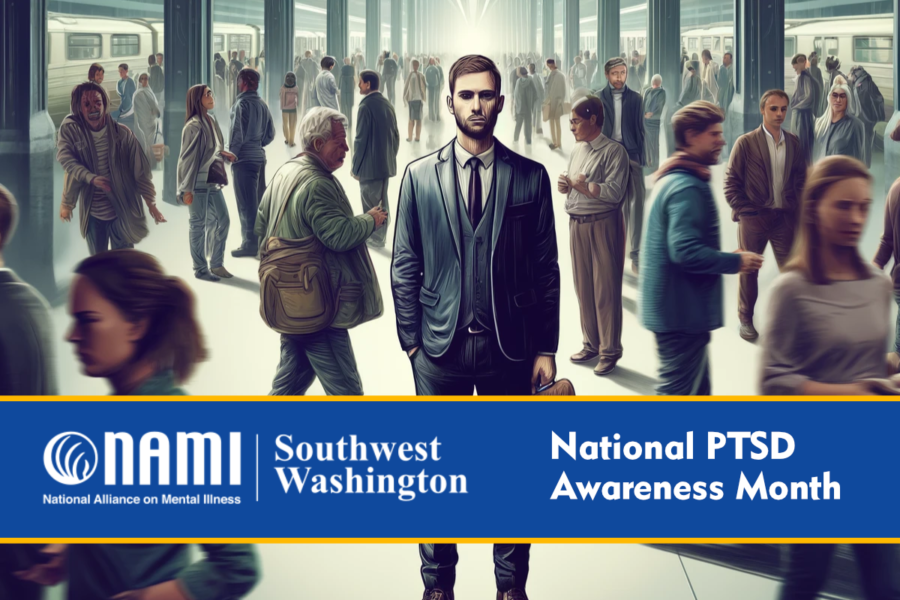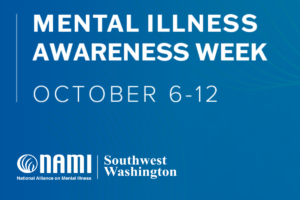June marks National PTSD Awareness Month, a time dedicated to raising awareness about Post-Traumatic Stress Disorder (PTSD) and fostering understanding and support for those affected. PTSD is a complex mental health condition triggered by experiencing or witnessing a terrifying event, such as natural disasters, serious accidents, terrorist acts, war, or violent personal assaults like rape. The disorder transcends demographics, affecting individuals regardless of age, gender, or background, and its impact on daily life can be profound and long-lasting. Those suffering from PTSD may find it challenging to maintain relationships, hold steady employment, or even perform simple daily tasks.
By dedicating the month of June to this cause, we aim to highlight the importance of early intervention, promote access to effective treatments, and encourage those affected to seek help. Raising awareness also involves educating the public about the realities of PTSD, dispelling myths, and reducing the stigma associated with mental health issues, ultimately fostering a more compassionate and supportive society.
PTSD is characterized by persistent and severe symptoms that can develop after exposure to a traumatic event. These symptoms can include flashbacks, nightmares, severe anxiety, and uncontrollable thoughts about the event. PTSD is more than just a reaction to stress; it’s a disorder that can disrupt a person’s ability to function in everyday life.
Various experiences can lead to the development of PTSD, including:
- War and Combat: Military personnel and veterans often face extreme danger and witness horrific events during their service. The intense and prolonged stress of combat, along with exposure to death and destruction, can leave lasting psychological scars. Veterans might relive these traumatic experiences through flashbacks and nightmares, and the transition back to civilian life can be particularly challenging.
- After returning from deployment, a war veteran might find themselves reliving combat experiences through vivid flashbacks and nightmares. Loud noises or crowded places can trigger intense anxiety, making everyday situations feel like battlefields. The struggle to reconcile their experiences with civilian life can lead to feelings of isolation, anger, and frustration. The veteran might also experience survivor’s guilt, questioning why they survived when others did not, further complicating their emotional recovery.
- Survivor of Sexual Assault: Survivors of sexual violence endure intense trauma that can have lasting psychological effects. The violation of personal safety and bodily autonomy can lead to deep-seated feelings of fear, shame, and mistrust. These survivors may experience hypervigilance, severe anxiety, and difficulties in forming and maintaining relationships.
- For a survivor of sexual assault, everyday interactions can become fraught with fear and hypervigilance. Trusting others might seem impossible, and reminders of the assault can trigger debilitating panic attacks. The world feels unsafe, and the survivor might withdraw from relationships and activities they once enjoyed. This withdrawal can lead to profound loneliness and depression, as they grapple with feelings of shame and self-blame, despite the fact that the assault was not their fault.
- Childhood Trauma Survivor: Abuse, neglect, or other traumatic events during childhood can significantly impact mental health well into adulthood. Early exposure to trauma can affect brain development and emotional regulation, leading to a range of issues such as attachment disorders, depression, and anxiety. Survivors might struggle with self-worth and find it challenging to establish healthy relationships.
- An individual who endured childhood trauma might struggle with self-worth and emotional regulation. Relationships can be challenging due to deep-seated mistrust and fear of abandonment. Nightmares and flashbacks can be a constant reminder of past pain, making it difficult to find peace and stability. This ongoing turmoil can affect their ability to hold steady jobs, maintain friendships, or pursue educational goals, creating a cycle of instability that feels impossible to break.
- Serious Accident Survivor: Involvement in or witnessing a serious accident, such as a car crash or workplace incident, can be extremely traumatic. The sudden and often violent nature of these events can leave individuals with lasting fears, flashbacks, and an increased sense of vulnerability. Recovery can be hindered by physical injuries and the psychological impact of the accident.
- Someone who has experienced a serious accident, such as a car crash, might develop an intense fear of driving or even being a passenger in a vehicle. Flashbacks to the moment of impact can occur unexpectedly, causing panic and disorientation. The survivor might also experience physical pain from injuries sustained in the accident, which can serve as a constant reminder of the trauma. This can lead to avoidance behaviors, where they steer clear of situations that remind them of the accident, further limiting their daily activities and social interactions.
- Natural Disaster Survivor: Experiencing natural disasters such as earthquakes, hurricanes, or floods can be profoundly traumatic. The sudden, uncontrollable nature of these events, along with the potential loss of homes, loved ones, and a sense of safety, can lead to PTSD. Survivors may experience ongoing anxiety, difficulty sleeping, and a heightened sense of threat even after the immediate danger has passed.
- Individuals who have survived natural disasters, like earthquakes or hurricanes, might find themselves constantly on edge, fearing the next catastrophic event. Sudden weather changes or environmental cues can trigger intense anxiety and panic attacks. The loss of their home and the displacement that often follows a natural disaster can lead to feelings of instability and insecurity. They might also experience survivor’s guilt, questioning why they were spared while others were not, adding to their emotional burden.
James’ Journey: From Iraq War Veteran to PTSD Advocate
James returned home from his tour in Iraq feeling profoundly alone and consumed by anger. His experiences overseas had changed him in ways he could not initially understand, and he found it challenging to reintegrate into civilian life. The sense of camaraderie and purpose he had in the military was replaced by a feeling of aimlessness and disconnection. Every loud noise or sudden movement triggered memories of combat, making everyday situations feel perilous and out of control.
James was not only angry at the military and politicians for the decisions that led to his deployment but also at his family, whom he felt had pushed him into a role he had never wanted. He was haunted by the faces of those he had lost, and the disconnect between his wartime experiences and the civilian world deepened his sense of isolation. He felt like a stranger in his own home, surrounded by people who could not possibly understand what he had been through.
In his darkest moments, James considered ending his life. The pain and anger seemed insurmountable, and he believed that no one could help him. It was only when he reached out for help and began therapy that he started to see a glimmer of hope. Through therapy, James was able to connect with other veterans who had similar experiences. Sharing their stories and hearing theirs helped him realize that he was not alone in his struggles. This connection was a turning point, as he began to understand that his anger stemmed from unresolved feelings about the trauma he endured.
Therapy provided James with the tools to confront his feelings and start the healing process. He learned that his anger was a protective mechanism, shielding him from the deeper pain of loss, guilt, and betrayal. By addressing these underlying emotions, he began to dismantle the walls he had built around himself. This journey was not easy, and there were many setbacks along the way, but each small victory brought him closer to peace.
James realized that to fully heal, he needed to find a new sense of purpose. Drawing on his own experiences, he decided to become a mental health professional specializing in war-related PTSD. He went back to school, earned his degree, and began working with veterans who were struggling as he once had. His unique perspective and personal journey allowed him to connect with his clients on a profound level, providing them with the understanding and support he had once desperately needed.
Now, James travels the country sharing his story and advocating for mental health awareness. He speaks at conferences, leads support groups, and offers one-on-one counseling. He uses his personal journey to help others who feel trapped in helpless situations, often believing that suicide is their only option for relief. James’ story is a powerful testament to the importance of support, understanding, and the potential for recovery. His work has saved lives and provided hope to countless individuals who felt lost and alone.
James’ transformation from a war-weary veteran to a beacon of hope for others demonstrates that even the deepest wounds can heal with the right support and determination. His life’s mission is to ensure that no one has to suffer in silence and that everyone knows they have the strength within them to overcome their darkest days.
NAMI Southwest Washington offers multiple types of support groups for people in our community. Our support groups are peer-led and offer participants an opportunity to share their experiences and gain support from other attendees.
How to Help Someone with PTSD
Supporting someone with PTSD involves patience, understanding, and encouragement. Here are some ways to help:
- Encourage Professional Help: Create a safe and supportive space for your loved one to express their experiences and emotions. Allow them to share at their own pace, without interrupting or offering unsolicited advice. Validate their feelings by acknowledging their pain and showing empathy.
- Listen Without Judgment: Create a safe and supportive space for your loved one to express their experiences and emotions. Allow them to share at their own pace, without interrupting or offering unsolicited advice. Validate their feelings by acknowledging their pain and showing empathy.
- Be Patient: Recovery from PTSD is often a long and challenging journey. It’s important to be patient and understand that there will be good days and bad days. Avoid setting unrealistic expectations and celebrate small victories along the way.
- Educate Yourself: Knowledge is power. Take the time to educate yourself about PTSD—its symptoms, triggers, and treatment options. Understanding the condition will help you better support your loved one and provide more informed and compassionate care.
- Offer Practical Support: People with PTSD may struggle with daily tasks and responsibilities. Offer practical help, such as assisting with household chores, running errands, or providing transportation. Your support can alleviate some of their burdens and reduce feelings of isolation.
- Be there for Them: Sometimes, just being present is enough. Spend time with your loved one, engage in activities they enjoy, and be a consistent source of companionship. Your presence can provide comfort and reassurance, helping them feel less alone in their struggle.
- Respect Their Boundaries: Everyone with PTSD has different triggers and comfort levels. Respect their boundaries and avoid pushing them to talk or engage in activities they are not ready for. Allow them to take the lead in their recovery process.
- Encourage Self-Care: Help your loved one prioritize self-care. Encourage healthy habits such as regular exercise, a balanced diet, adequate sleep, and mindfulness practices. Self-care can play a crucial role in managing PTSD symptoms and promoting overall well-being.
National PTSD Awareness Month reminds us of the importance of understanding and supporting those affected by this condition. By raising awareness and promoting empathy, we can create a community where individuals with PTSD feel understood, supported, and hopeful for the future. Here at NAMI Southwest Washington, we are here for you! Check out our “Support” page, and sign-up for a support group!




